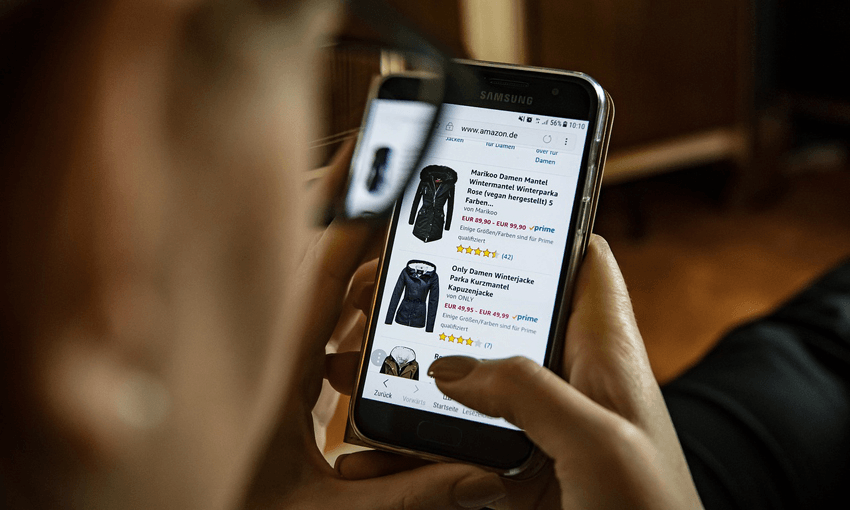In today’s Cheat Sheet, we take a look at the so-called ‘Amazon tax’ and what it means for local retailers and consumers.
So what’s the government taxing now?
The government has announced that low-value goods bought online from overseas will now be subject to a goods and services tax (GST) of 15%. Low-value goods include anything under $400 (anything more than $400 already gets taxed) and yes, that includes all those clothes, shoes, books and appliances you’ve been buying from sites like Amazon and ASOS (hence being nicknamed ‘the Amazon tax’). The changes will take effect from 1 October 2019.
What! This is an outrage. Why are they doing this? Why are they making me pay extra for stuff I buy online?
Keep in mind that whenever you buy anything locally – be that in-store or online – you’re paying 15% GST. The government is simply moving to apply the same principle to things you buy from overseas. It’s long been thought of as a loophole that gives offshore companies an advantage over domestic retailers who do have to collect GST.
“Local firms compete on an uneven playing field. Large multinationals sell exactly the same product into our market without collecting GST,” said Revenue and Small Business Minister Stuart Nash in a statement today. “Small businesses such as bookshops have convincingly argued they’re penalised by a system which is badly out of date. It’s particularly difficult for very small shops outside the main centres.”
Consumers will likely pay more for their goods. But the government says that in some cases, goods will actually be cheaper because of the removal of Customs tariffs, border security fees and biosecurity cost recovery charges.
Okay, that makes sense. So how is the government planning on collecting this GST? Are they just going to stand at the border and make people pay up as goods come in?
No, collecting at the border is time-consuming and expensive. A much better way is to use an offshore supplier registration system so that GST will be collected from point-of-sale by the companies themselves.
Not everyone’s an Amazon-sized behemoth raking in million dollars of revenue though. What about smaller, overseas-based retailers?
Offshore retailers would be required to register and collect GST if their total sales to New Zealand consumers exceed NZ $60,000 per annum. This is the same threshold that applies to domestic businesses and to offshore suppliers of cross-border services.
So how much revenue is this new online shopping tax set to bring in?
Revenue officials conservatively estimate that $53 million will be collected in 2019-2020, increasing to $78 million in 2020-2021, and $87 million in 2021-2022. Some tax experts have argued, however, that the amount estimated is wildly under.
There’s also a precedent we can look at it in terms of how such a tax works. Back in October 2016, the government actually implemented a similar tax but for services (aka the ‘Netflix tax’). Over 200 offshore suppliers – including Netflix, Spotify, iTunes and Kindle – registered for GST under the new rules and so far, they’ve brought in more than $162 million which is well above initial estimates of $40 million per annum.
What about other countries? What are they doing about the issue?
Across the Tasman, our Aussie neighbours are also set to start collecting GST on low-value imports from July 2018 via an offshore supplier registration system . Switzerland will also introduce an offshore supplier registration system for the collection of VAT on low-value goods from January next year.
Meanwhile, the EU has announced plans to implement a system akin to an offshore supplier registration model for the collection of VAT by 2021. Other countries such as the United Kingdom and Canada also have a de minimis that is significantly lower than New Zealand’s de minimis – the threshold at which revenue is collected.
So is this going to help drive more business to domestic retailers?
It’s hard to say. Local retailers obviously argue that overseas retailers have a price advantage due to being able to offer tax-free goods. But in some cases, overseas retailers will still end up having cheaper prices, even with GST added on. In addition, the reason why Kiwis buy from overseas isn’t just based on price – a lot of goods just aren’t available in New Zealand like they are in the US, UK and Australia.
Regardless, retailers are stoked at the news. Retail New Zealand has said the announcement would be “very good news indeed for the sector” while Booksellers NZ said they were “pleased that the issue was fast-tracked through the Tax Working Group”.
“This won’t suddenly make books and similar goods from small retailers cheaper than can be bought from giant offshore retailers with their huge advantage in purchasing power,” Lincoln Gould, CEO of Booksellers NZ added. “But it will provide a better opportunity for shops to compete with service and curation of their goods. Thus the experience of shopping local will be more economic and pleasurable.”
Read more: Why does online shopping turn us all into rabid libertarians?
The Spinoff’s business section is enabled by our friends at Kiwibank. Kiwibank backs small to medium businesses, social enterprises and Kiwis who innovate to make good things happen.
Check out how Kiwibank can help your business take the next step.



